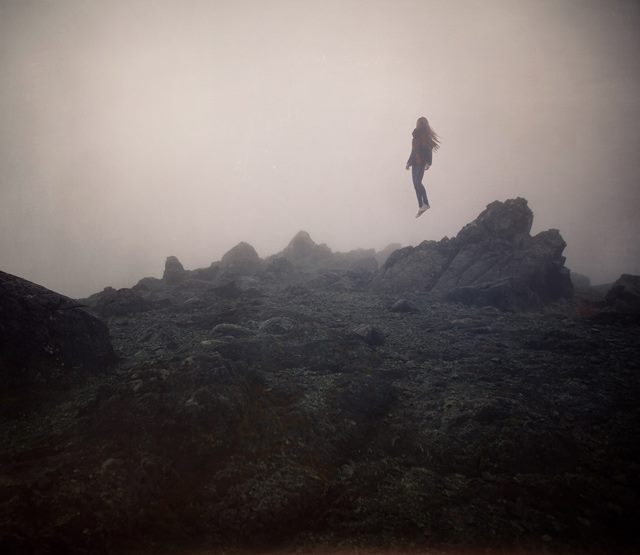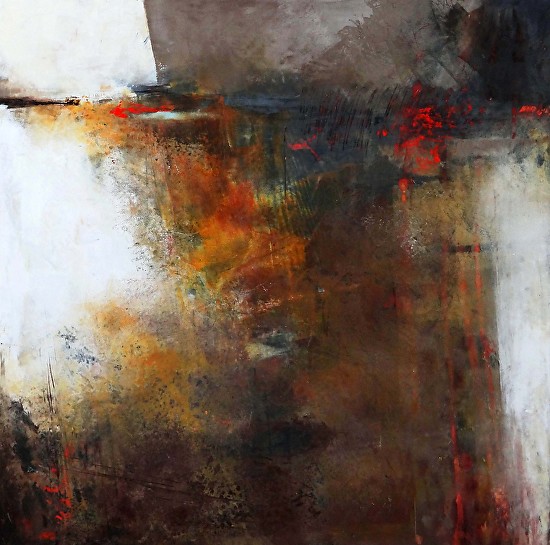
It wasn’t the first time I’d met a cliché, so I wasn’t surprised when she walked up and introduced herself. I was in a nice, clean, pretentious bar in Hollywood, but there’s no escaping phonies anywhere in that town, and I had her figured for a phony before she even opened her mouth. What would you have thought? The slinky white satin gown that caressed her breasts and thighs as she walked, the skin that looked smoother than skin ever is in our sunbeat part of the world, the brassy hair that even bobbed over one eye–a style that had been out-of-date in my father’s time…. Right down to the martini glass carefully balanced in one hand as she sashayed through the crowd. The crowd didn’t pay much attention to her—a couple of glances from the straight guys, mostly the older ones. It was Hollywood; they were used to good-looking phonies. The town offered them in wholesale lots. If some woman had come in looking like an honest female human, they would have stared her down, or maybe just turned away to slouch into their drinks while they thought up a better way to cheat their barmates. I looked her up and down myself because she was, after all, good-looking, though I wasn’t sure how good she’d look without the satin and pancake and heels. Probably an ordinary girl, freckles, dry hair, tired eyes. She came here to play the script she’d written in her own head. That’s what they were all doing here.
All except me. Not because I’m so fucking self-righteous or anything, but because it wasn’t my choice to be here. I had to meet someone, and the Harbor Bar, which was a good thirty-something miles from the actual harbor as the crow flies, was where they said to meet. It wasn’t my kind of place: I’m a wine-drinker and I like restaurants with decent food. So I sipped my twelve-dollar glass of four-dollar wine, which the barkeep had handed me with a look of pitying boredom, and checked out the slinky girl while I waited for my appointment.
She homed in on me like one of those guided missiles that follows the laser dot. I was surprised. If she wasn’t the normal human female type, I was definitely the normal human male type. Unremarkable by design. Nice clothes but dull colors, a haircut you could get anywhere in the world, cheap comfortable shoes. My own private-label brand of rebellion, and I suppose it worked too well. I stood out by not trying to stand out. Maybe I even did it on purpose, although I’m saying that just to cover my bases. I don’t like to be noticed, even by good-looking girls who are trying so hard to be slinky—and in this case succeeding. Being noticed brings annoyance, and sometimes trouble. Losers who want to tell you their life story and convince you to invest in their inevitable future fame. Or just plain con men. So my first thought was that she took me for some sort of lonely square she could scam out of something and maybe not even have to go to bed with him. I tell you, living in Hollywood makes you cynical. That’s why I just used the word “square,” which is out-of-date even among actual squares. I want no part of it. Not even the slang. But there she was, a minor nightmare in white satin, locking her eyes on mine. She slalomed up to me, dropped her eyelids dramatically, and said my name, with a polite question mark at the end. I kept a few incipient swear words from adding to the din of the bar. She was the fucking client.
“Yeah, that’s me. Larry F. Sanders. I take it you’re Holly Johnson.”
“Holly F. Johnson.” She smiled, and I wasn’t sure, but it looked like a real smile, not a scripted one.
“Well, I should’ve known,” I said. “You hold the drink like it’s a…microphone.”
She laughed then. “I was afraid you were about to say something crude.”
“We don’t know each other that well yet. Is there a place in this joint where we can talk without projecting? You might be good at that but I haven’t sung since I broke my momma’s heart by dropping out of after-school chorus. And it was no loss to music, I tell you.”
“Follow me,” she said, and slalomed away. I did as I’d been told. It was definitely pleasant to keep an eye on her as she led the way. I’m sure she knew it too.
There was a booth in the back where some of the din was absorbed by the red vinyl tuck-and-roll on the walls. A cute little padded cell with a table for four, or two if you included their egos. She slid into place like she’d been machined to fit, and I blundered in with my usual lack of grace, which I am always at pains not to hide in places like that. There was a battery-powered votive candle on the formica tabletop; it even flickered a little, like it was about to fade out. But no such luck. She placed her martini glass on the table and picked up the candle, smiling. “Classy, huh?” she said. I nodded and took a sip of the wine. Someone bulky lumbered by in the shadows, headed down the red-lit hallway to the rest room. “Not the best table,” she said. “But the quietest.”
“Always be grateful for small favors,” I said.
“Because that’s the most you’ll usually get,” she answered.
We automatically raised our glasses and clinked them over the electric candle. I couldn’t help reflecting her smile. This might not be so bad after all.
“So,” she said, “your mother wanted you to be a singer?”
“Hardly. She wanted me out of her hair for an extra couple of hours twice a week. Listen, the choirmaster was happy when I left. At least he didn’t try too hard to convince me I ought to stay.”
“Well, you’re still in something creative. Designing websites is creative.”
“I just fell into it. It was what was happening when I needed an income, and I got in early when it was easy to learn. Now I want out. With the damn smartphones and all, there’s no point in making a good design, since it all ends up stacked like shoeboxes on those little screens anyway.”
“But you agreed to meet me about doing mine….”
“I want out, but I still got rent to pay. And I’m still good enough to get by.”
“So am I. I started singing as a kid, but I didn’t really dedicate myself to it till I was a little too old to hit the peak. Meaning I was twenty before I took myself seriously. I’ll never be great,” she said, “but I’m good. And I’m brassy enough that I want the world to know it.” She took a sip of her drink. “Eventually I realized I’m happiest when I’m in front of a band, singing obsolete jazz songs. And the only way I can afford the time it takes to do that is to get paid for it. So I’m ready for a website to help that happen.”
“I’m surprised you haven’t had one before. I checked you out online, of course. That doesn’t bother you, does it?”
She emitted a theatrical sigh. “Hey, I’m looking for attention, right? That’s why I called you? Yes, I did have one, but I was still using my ex’s name then. It was one of those cheap ones where you fill in the blanks, you know? No one visited except my friends, who didn’t need to. They came to my gigs anyway. So, the usual story…I dumped him, and I tried to dump the website, but it’s still up there somewhere. Not that anyone notices or cares. Except maybe the ex, who’s still kinda carrying the torch.”
“I can take care of that for you, if it bothers you.”
“The website, or the ex?”
I had to laugh at that one. “Just the website, Holly. I’m a good boy. I mean, I definitely know how you feel about exes and all, but that’s not my line of work.”
She looked at me over the rim of her glass, lowered lids et cetera, the sexy-threatening shtick, marred a little by clumps of mascara. It was a good effect, but it would only work in close-up. “I guess you really didn’t need to know that,” she said. “But now you do. So are you married, Mr. Larry F. Sanders?”
“Frequently, but not presently,” I said. It was a good line, and it was also true. I’m a sucker for the love-nest scenario, which never ends happily ever after. Anyway, it cracked her up; she laughed a good loud laugh, loud enough that the phonies at the other tables turned their heads to look. I saw the crinkles at the corners of her eyes when she laughed. It didn’t look like the pancake was as thick as I’d figured. Maybe that was a good sign. Maybe it meant I still had a lot to learn. I’d always been a willing student.
“Now let me ask you a question, which might seem a little out of line. Why the slinky dish getup to meet a website designer at a bar while the sun’s still up? Are you, like, onstage 24/7?”
“Far from it. I’ve got a gig in Santa Barbara tonight, a place so small they don’t have dressing rooms. I’m past the days when I was so desperate I’d change in a toilet stall. And it’s a two-hour drive when the traffic’s good, which it never is in LA. So you see, I’m not so bad after all. It’s just that you’ve got to look the part, you know.”
“I know. It’s all part of the sales pitch.”
She looked a little miffed. “It’s all part of the show. People want their illusions just so. Believe me, this isn’t Holly Johnson in her daily life.” She ran her hands up and down her waist to illustrate. I thought that was unfair. She smiled one of the triumphant little smiles that women have. “But you like this Holly Johnson, don’t you?”
“Goes without saying. But there’s no cuteness discount.” This was the big test, and she passed it by laughing instead of frowning. “But,” I said, “would you dare to put the 7AM Holly Johnson on your website? You know, to show the human side of the icon. Or should it be album-cover style all the way? And I know I’m showing my age by talking about album covers.”
“Hey, I’ve got vinyl at home. It’s almost a bylaw of the jazz world. But let me think on it. It’s not that the 7AM Holly Johnson is a Medusa or anything like that, but…shit, you know this business is a hard sell, Mr. Larry F. Johnson. I need you to make me look like someone they’ll feel they ought to have heard about, y’know? Like they’ve been missing the boat. And icons aren’t supposed to have a human side.”
We talked business a little bit, but we got sidetracked into a long discourse on the music itself. It was good; I had to know how she felt about what she did, and she had to know how I felt about the One Big Thing in her life, but it took up too much time and two more drinks for me, just one for her. Finally Holly looked at the skinny silver watch on her wrist and said, “You know, Mr. Larry F. Johnson, I’ve got to go. Where’s your car? In the lot here?”
“I didn’t drive. I live about half a mile away. Why?”
“Come up to Santa Barbara with me. We can talk business—real business—on that long damn drive. And you can see me on stage. The drinks’ll be on me. Or on the house, if the crowd is good. I’ve played there before. I’ve got my camera in the car, and you can take some pictures if you want. Assuming we come to terms.”
I nodded. “I’m sure we will, Ms. Holly F. Johnson. I’m sure we will.”
She waved at the waiter to settle the bill. I offered to cover it—it was a deductible expense—but she insisted on taking the deduction for herself. Yeah, she was the lady, but she was also the client. What do the phonies always say when they’re about to cheat you? “Business is business.” Well, no one was cheating anyone here. We just accepted the complications of life. I did give her my hand to help her out of the booth. Her hand was nice and warm. My momma would have been proud.
“Follow me,” she said. She began to slink out of the bar, parting the waters of phonies, on her way, with my help, to the promised land. I followed her. It wasn’t too hard to do.
Richard Risemberg was born into a Jewish-Italian household in Argentina, and brought to Los Angeles to escape the fascist regime of his homeland.He has lived there since, except for a digression to Paris in the turbulent Eighties.He attended Pepperdine University on a scholarship won in a writing competition, but left in his last year to work in jobs from gritty to glitzy, starting at a motorcycle shop and progressing through offices, retail, an independent design and manufacturing business, and most recently a stint managing an adult literacy program at a library branch in one of the poorest neighborhoods of the city. All has become source material for his writing. He has pursued journalism, photography, and editorial writing, which, combined with his years in motorcycle culture, introduced him to the darker side of the dream. His fiction concentrates on working-class life, homelessness, and cultures of violence, and the indifference of the Dominant Culture to it all.









